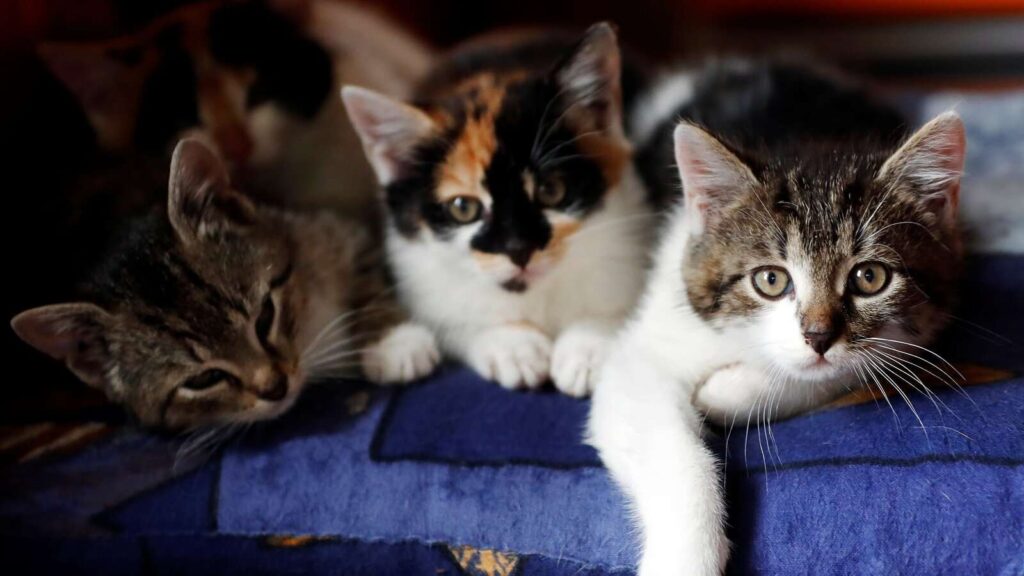Learning is sexy, particularly as it involves knowing the hidden truths and opening our eyes to new information. Now, did you know that cats, often considered independent animals, can grieve the loss of their furry companions?
Surprising, right? A recent study by researchers from Oakland University published in a journal studies how cats react when another animal in the household passes away. The researchers conducted a survey involving over 400 cat owners.
And guess what? The findings revealed that many cats show signs of mourning when faced with the loss of a fellow pet. These behaviors include reduced appetite, a decreased interest in play, and a desire to be alone.
Behaviors Typically Associated With Cat Grief
In addition to the aforementioned signs, cats were also found to seek more attention from their owners during grief. In fact, they tend to sleep more frequently and even appear to search for their deceased friend.

ALSO READ: Here’s How To Save Your Pets From Extreme Winter Cold
This study gives us a new perspective on our understanding of feline emotions. Additionally, it emphasizes that the bonds between pets in a household run deeper than what you may previously think.
Jennifer Vonk, a psychology professor at Oakland University noted that she was a bit optimistic when she discovered that the cats used for the research were forming attachments with one other. According to Vonk, the most compelling evidence came from observing changes in feline behavior that align with what one might expect in grieving animals.
She explained, “These changes are often predicted by factors such as the length of time the animals lived together, the activities they shared, and the overall quality of their relationships.”
What to Do for a Grieving Cat
In another interview, Vonk addressed the popular misconception about cats, who are often perceived as less social than dogs. She said, “Unlike dogs, we tend to think that cats are aloof and not social. I think we’ve been mischaracterizing them.”
ALSO READ: Travel and Sleep: Tips to Help You Rest on the Road
So, how do you help a grieving cat? According to research, you may want to maintain a consistent routine with your cat. This will help your cat navigate grief in the days and weeks following a loss. You should also keep meal times the same as before, as this can provide comfort and stability during this challenging period.
It’s equally important to monitor your cat closely, ensuring they are eating, drinking, and using their litter box properly. If your cat stops eating for more than two days, contact your vet immediately, as this could lead to serious health issues, such as liver damage. You might also consider using pheromones, which can help calm a stressed cat.
Your vet can provide guidance on whether this might be beneficial for your feline friend. Most importantly, focus on your bond with your cat. Pay attention to what your cat enjoys and offer more of it—whether it’s extra cuddles for a cat that loves affection, engaging playtime, or simply spending more time outdoors.
How Long Does a Grieving Cat Last?
One important thing to note during your cat’s grieving stage is that cats don’t perceive death in the same way humans do. Therefore, they won’t necessarily show respect for the deceased in the manner you might think.

The duration of your cat’s grief heavily depends on how you help it while it is grieving and how fast you get it a new companion. As for getting a new pet, it’s important not to rush into it. Like I said, the loss of a companion can make the idea of bringing a new pet into the home appealing for you and your cat’s comfort.
However, cats have individual social needs and may not always form bonds with new pets, even if they previously cohabited well with other cats. Experts strongly advise giving your surviving cat time to adjust to life without their companion before introducing a new pet.
Who knows, bringing a new cat or kitten into the home too soon can add additional stress to an already grieving cat. If, after a few months, you believe your cat might benefit from a new friend, consider contacting your local rehoming center. Introductions should be handled carefully and gradually.
You Might Also Like:
Disneyland Ride Malfunction Causes Panic As Guests Slam Into Doors
British Tourist Caught Vandalizing Houses in Pompeii
Baking Soda Water: The Surprising Health Trend That’s Got Everyone Talking
Travis Scott Taken into Custody in Paris Following Altercation with Bodyguard
Paramount Global Announces Major Layoffs, Set To Cut Off 15% of US Staff
